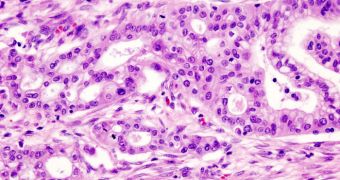Researchers at the Eli and Edythe L. Broad Institute, a collaboration between Harvard University and the Massachusetts Institute of Technology, have recently finished compiling the most comprehensive study of cancer diversity ever conducted, and their results are terrible – it would appear that there are 25 percent more cancer mutations than previously established.
This landmark study should from now on provide oncologists with a clearer picture of what they are fighting, while also potentially enabling the development of new personalized therapies. Each of these types of cancer mutations needs to be addressed individually, not in bulk, to improve outcomes.
The exact number of cancer mutations out there has made the object of several other studies, but the new paper indicates that previous estimates were optimistic to say the least. The Broad Institute-led team conducted this investigation using as few as 100,000 tumor samples.
According to researchers, this study will play a critical role for future cancer drug development, as experts will become more in tune with reality when it comes to developing chemicals to battle a specific subset of cancer cells.
“For the first time, we know what it will take to draw the complete genomic picture of human cancer,” explains Broad Institute director Eric Lander, who is also a senior coauthor of the new paper. Details of the work appear in a paper published in this week's issue of the top journal Nature.
“That’s tremendously exciting, because the knowledge of genes and their pathways will highlight new, potential drug targets and help lead the way to effective combination therapy,” he goes on to say.
Previous studies have determined the existence of 135 genes that were involved in underlying – in one way or another – the 21 most important types of cancer tumors. The new investigation discovered an additional 35 genes that played significant roles in a variety of processes related to cancer progression.
These genes were found to be involved in helping cancer prevent cell death, in boosting tumor cell growth, in improving genome stability, and in enabling diseased cells to evade the actions of the human immune system.
“One of the fundamental questions we need to ask ourselves is: Do we have a complete picture yet? Looking at cancer genomes tells us that the answer is no: there are more cancer genes out there to be discovered,” Broad Institute computational biologist Mike Lawrence concludes.

 14 DAY TRIAL //
14 DAY TRIAL //